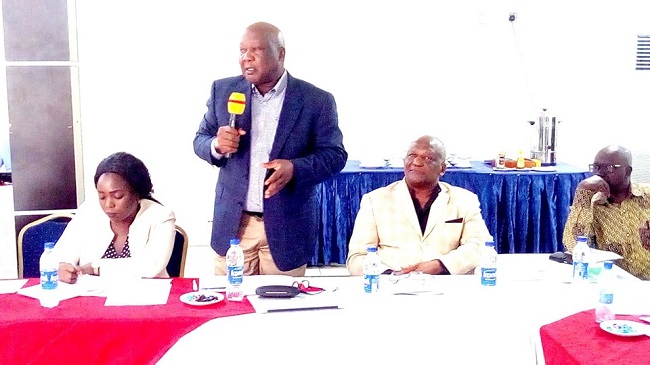Up from its laid-back position on matters relating to the environment, Nigeria has started making environmental issues justiceable.

This was noted by the Head, Legal Resources, Environmental Rights Action/Friends of the Earth Nigeria (ERA/FoEN), Chima Williams, at a two-day forum in Lagos organised by the Department of Climate Change (DCC) of the Federal ministry of Environment, with the support of the United Nations Development Programme (UNDP).
Lawyer and executive director of Clean Energy Initiative (CEI), Mr. Huzi Mshelia, echoed this laid-back posture when he asked: “How can Nigeria support climate change when common issues like the Apapa Road that is claiming lives and property daily has not been given attention?”
Facilitated by Environmental Resource Centre (ERC), the forum, which ended on Tuesday, August 20, 2019 planned to inaugurate the Climate Change Legal Working Group (CC-LWG) to the United Nations Framework Convention on Climate Change (UNFCCC). The CC-LWG will represent Nigeria at the 25th Conference of Parties (COP25) in Santiago, Chile, from December 2 to 13, 2019.
According to Williams, anybody can now go to court of law over matters affecting humanity, especially on environmental abuses.
He drew his strength from a recent litigation outcome between a non-governmental organisation and the Nigerian National Petroleum Corporation (NNPC).
Centre for Oil Pollution Watch had dragged the corporation to the Federal High Court, Lagos, over alleged oil spillage in Acha Community of Isukwuato Local Government Area of Abia State.
Heartwarmingly, the Supreme Court eventually ruled that the appellant had the right to institute the action.
Some participants at the forum, mainly lawyers, enthused that “we now have a weapon to fight the issue of gas flaring.”
However, absence of the director, Department of Climate Change (DCC), Dr. Peter Tarfa; and the permanent secretary, Federal Ministry of Environment. stalled the inauguration of the legal team for COP25. The inauguration was shifted to November at the preparatory meeting for Santiago.
Dr. Adesina Adegbie of Nigerian Institute of Oceanography and Marine Research (NIOMR), Victoria Island, Lagos, described non-implementation of laws as a waste.
“It is good to make laws, but when the law is not enforced, it mounts to waste of resources. Unfortunately, this has been the lot of Nigeria,” he said.
Towards COP25 and other legal issues on the environment, the legal adviser to the African Group of Negotiators to the UNFCCC, Prof. Seth Osafo, advised lawyers to acquaint themselves with the Kyoto Protocol (KP), UNFCCC, Doha Amendment to the KP, and Paris Agreement (PA), among other international documents.
He expressed excitement that contents of some of the international documents had been internalised by local lawyers and other stakeholders.
Papers delivered on the first day of the forum include “Nigeria in the UNFCCC Process: So Far” presented on behalf of Tarfa by Mrs. Asma’u Jibril of DCC, “Climate Governance in Nigeria” by Mr. Mshelia from ERC, and “Overview of the UNFCCC Process and of Role of Legal Advisers” by Osafor.
On the second day, Osafor presented “Ahead COP25: African Negotiation Group’s Position on Key Negotiation Issues”, while Partnerships, Climate Change and Protected Areas Advisor, Amir Sokolowski, took ‘The Emerging Carbon Markets under Article 6 of the Paris Agreement: Salient Legal Issues” and Mrs. Jibrin presented “Nigeria’s Preparedness Ahead of Article 6 of the Paris Agreement: Prospects and Challenges”.
By Chika Onwuji
